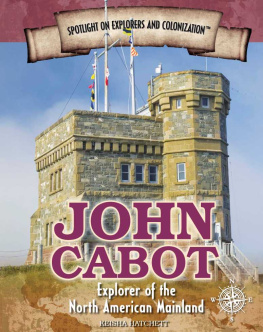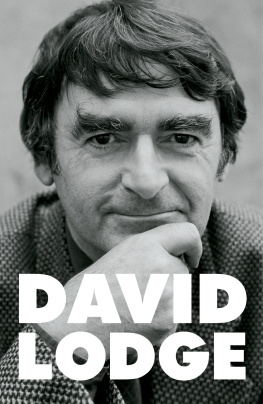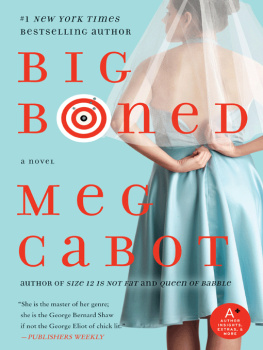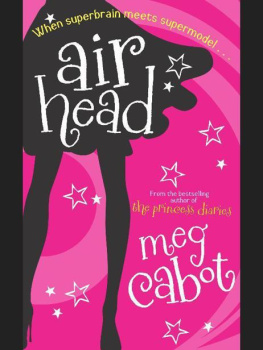Henry Cabot Lodge - Early Memories
Here you can read online Henry Cabot Lodge - Early Memories full text of the book (entire story) in english for free. Download pdf and epub, get meaning, cover and reviews about this ebook. year: 2011, publisher: Barnes & Noble, genre: Non-fiction. Description of the work, (preface) as well as reviews are available. Best literature library LitArk.com created for fans of good reading and offers a wide selection of genres:
Romance novel
Science fiction
Adventure
Detective
Science
History
Home and family
Prose
Art
Politics
Computer
Non-fiction
Religion
Business
Children
Humor
Choose a favorite category and find really read worthwhile books. Enjoy immersion in the world of imagination, feel the emotions of the characters or learn something new for yourself, make an fascinating discovery.
- Book:Early Memories
- Author:
- Publisher:Barnes & Noble
- Genre:
- Year:2011
- Rating:5 / 5
- Favourites:Add to favourites
- Your mark:
- 100
- 1
- 2
- 3
- 4
- 5
Early Memories: summary, description and annotation
We offer to read an annotation, description, summary or preface (depends on what the author of the book "Early Memories" wrote himself). If you haven't found the necessary information about the book — write in the comments, we will try to find it.
During the thirty years he held public office, Henry Cabot Lodge was one of the most powerful Republicans in Washington D.C. This engaging memoir provides an insightful look at Lodges early years and influences, his education at Harvard, friends and family, and the events that shaped his life before he entered public servicesuch as his time in the Civil War, journey to Europe, and time as editor of TheNorth American Review.
Early Memories — read online for free the complete book (whole text) full work
Below is the text of the book, divided by pages. System saving the place of the last page read, allows you to conveniently read the book "Early Memories" online for free, without having to search again every time where you left off. Put a bookmark, and you can go to the page where you finished reading at any time.
Font size:
Interval:
Bookmark:
HENRY CABOT LODGE

This 2011 edition published by Barnes & Noble, Inc.
All rights reserved. No part of this publication may be reproduced, stored in a retrieval system, or transmitted, in any form or by any means, electronic, mechanical, photocopying, recording, or otherwise, without prior written permission from the publisher.
Barnes & Noble, Inc.
122 Fifth Avenue
New York, NY 10011
ISBN: 978-1-4114-5428-6
CHAPTER I
HEREDITY
E VERY one in giving an account of himself would like, I think, to begin with the words of the Duc de Choiseul at the opening of his memoirs: "Je ne vous parlerai pas, Monsieur, de ma naissance. L'on m'a toujours dit que j'tais gentilhomme aussi ancien que qui que ce soit. J'ignore absolument ma gnalogie qui est, comme celle de tout le monde, dans les livres qui traitent cette matire." We may still say, with a gentleman and a scholar who lived many years before the Duc de Choiseul: "Honestissimum enim est majorum vestigia sequi, si modo recto itinere prcesserint," but it must be admitted that times and manners have greatly changed since the minister of Louis XV wrote, with a fine disdain, in this fashion. The little world where "everybody" could find his genealogy in "the books" has departed. The waves of democracy have submerged the old and narrow lines within which the few sat apart, and definition of a man's birth and ancestry has become more necessary. Moreover, Darwin and Galton have lived and written, Mendel has been discovered and revived, and the modern biologists have supervened, so that a man's origin has become a recognized part of his biographer's task. Therefore, he who writes of himself must follow the practice of those who write the lives of people other than themselves.
My father was John Ellerton Lodge, a merchant of Boston, an owner of ships engaged in commerce with China. He was the son of Giles Lodge, who was born in London in 1770, the son of Matthew Lodge, a merchant, and Elizabeth Ellerton. The Ellertons were an old family in the north of England, where a priory on the Swale and an abbey on the Derwent commemorate the antiquity of the race and their devotion to the church, both foundations bearing the Ellerton name. The abbey was still in the possession of the family in 1866. At that time a cousin of my father had changed his name to John Lodge Ellerton in order to inherit the property, which, I think, was of slight pecuniary value, and, as he had no children, he asked my mother to let me take the name of Ellerton and remain in England, a proposition wisely declined without previous consultation of the person most concerned, although I should have cheerfully ratified the decision.
According to Burke's "Royal Descents," Matthew Lodge was descended from Francis Lodge, archdeacon of Killaloe at the beginning of the seventeenth century. I find in Dwyer's "History of the Diocese" that the name of the archdeacon was Thomas Lodge, that he was archdeacon from 1624 to 1638, and that he was a graduate of Oxford. There are four of the name in the Oxford lists of about that period, and it was not possible, with such research as I could give, to identify the archdeacon. I should have liked to connect him with Thomas Lodge the poet, but beyond the fact that the arms of my ancestors arc identical with those of the poet's father, a rich grocer and Lord Mayor of London in 1563, I could discover no evidence of relationship. My grandfather, Giles Lodge, who, as I have said, was born in London in 1770, was in the West Indies in 1791 on business for his brothers, who were merchants in London and Liverpool. He was caught at Santo Domingo in the rising of the blacks which occurred in August of that year. Presence of mind and the fact that he spoke French fluently enabled him to escape the massacre and take refuge on an American schooner which brought him to Boston. Coming to Massachusetts by the merest accident, he found a good business opening in Boston, settled there, became a merchant and the correspondent of his brothers, and never returned to England; in fact, he never left America again. In 1800 he married Mary Langdon, the daughter of John Langdon, who had been a stationer, then a captain in the Continental army during the Revolution, and who finally held a place in the customhouse, to which he was appointed by Washington. John Langdon's cousin, Samuel Langdon, was the president of Harvard College at the time of the Revolution, and prayed for the troops drawn up on Cambridge Common on the evening of June 16, just before they set out for Bunker Hill. The Langdons were descended from John and Philip Langdon, who came to New England in the seventeenth century, sailors and ship-captains, and such their descendants continued to be for a hundred years. John Langdon's wife, the mother of Mrs. Giles Lodge, was Mary Walley, the daughter of Thomas Walley, a prosperous merchant of Boston, grandson on the mother's side of Thomas Brattle, one of a family eminent in Colonial times, and on the father's side grandson of John Walley, lieutenant-general of the Canadian expedition in 1690, and later a judge of the Supreme Court.
My grandfather, Giles Lodge, died in 1852 in the eighty-third year of his age. I have been told that he knew me, and was pleased to like me, but of him personally I have, of course, no recollection whatever. His portrait shows that he was fair, and the face which looks out from the picture is handsome, gentle, and refined. The family tradition represents him as a gentleman of somewhat determined character, "whose word was law," and whose laws were promulgated in the most concise form and were subject to no debate. My mother always spoke of him with great affection, and said that he was invariably most kind to her. Apart from his picture, the family tradition, and some business letters, I have nothing which throws any light upon him or his character except his cane and a few books, my father's small portion, I suppose, of the library, which was divided among many children. A cane would not seem to be a very illuminating witness, and yet this particular stick has seemed to me full of meaning. I have never been able to use it; it is not long enough for methus showing that its owner was a short man. It is a blackthorn, with a long steel ferrule, and a large irregular piece of ivory fitted tightly down on the top. It is very thick, very formidable as a weapon, very determined in appearance. Altogether, it is a stick with a great deal of sturdy character, like its possessor. It is a cane which might have supported the tottering footsteps of any man, and yet it distinctly suggests, as one grasps it, that its owner never either wavered or tottered in his walk.
The books with my grandfather's name written on the fly-leaves, in his neat, precise hand, tell another story and seem to show another side. Most of them are, as one might expect, eighteenth-century classics: "The Spectator," "The Tatler," "Hume's Essays," and the like. Neat little volumes, good editions, in excellent contemporary binding, they, too, seem characteristic of their possessor. Then there are Pope's translations of the Iliad and Odyssey, also in the "reliure de l'poque," which is much worn by use rather than by time. But the surprising book is a very pretty and complete edition of Spenser, evidently much read in its day and generation. I have often wondered what the element was in my grandfather's temperament which drew him to the great Elizabethan and made him love and read the "poets' poet," so alien to the taste of the eighteenth century and to the pursuits of a hard-working merchant and man of business.
My father's mother I never even saw. She died before I was born, and, except for the fact that my mother was fond of her, I know nothing about her. There is a hard portrait of her in the possession of the family, painted by Rembrandt Peale. The features are clear and well-cut, but my poor grandmother is so disfigured by the turban she has on that it is difficult to tell whether she was good-looking or not. It was a hideous fashion, that of the turban, so prevalent in those early nineteenth-century days, and when I read of the game of whist in which Mr. Pickwick engaged at Bath I used to wonder, most irreverently, if the Dowager Lady Snuphanuph looked like my grandmother's portrait. Now the wheel of fashion has revolved, and I see indications of the renascence of the turbans of our grandmothers.
Font size:
Interval:
Bookmark:
Similar books «Early Memories»
Look at similar books to Early Memories. We have selected literature similar in name and meaning in the hope of providing readers with more options to find new, interesting, not yet read works.
Discussion, reviews of the book Early Memories and just readers' own opinions. Leave your comments, write what you think about the work, its meaning or the main characters. Specify what exactly you liked and what you didn't like, and why you think so.







